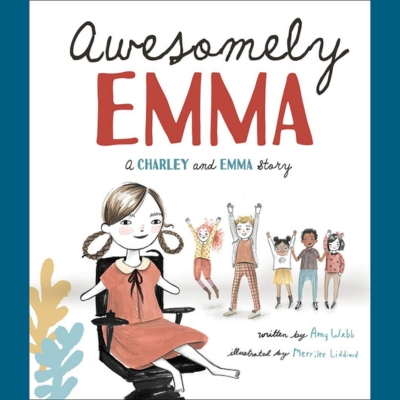Look, it's me!
A charming book about self-advocacy and the power of collective action

Review by: Chloe SR

A charming book about self-advocacy and the power of collective action
Awesomely Emma is a charming book about self-advocacy and the power of collective action to drive social change. Emma is a budding young artist with limb differences. She is proud of her disability and confident in herself, often proclaiming, “My body works differently – I love being me! Because ME is an awesome thing to be.”
However, during a school field trip to the art museum, Emma encounters both environmental and attitudinal barriers. When Emma arrives at the museum, she is told the entrance is not accessible for her. This results in Emma being separated from her friends as she finds a way in. This causes her friend Charley to pity her, and he begins treating her differently. Charley starts assuming what Emma can and can’t do and begins helping her with basic tasks, even though Emma has not asked. Emma grows frustrated with Charley’s behaviour and expresses her emotions, telling him, “Having a disability doesn’t mean my body is wrong – my body is just right!” Charley apologises and says he was only trying to help, and Emma explains that she will ask if she needs help with something.
Emma then has an idea of how Charley can help, and they begin working on a letter to the museum asking for an accessible entrance. A few weeks later, they receive a reply from the museum saying they will start building an accessible entrance right away, to demonstrate that all bodies are welcome.
I love Emma’s self-confidence and pride in her disability. She is strong and capable, confident voicing her emotions, and not afraid to ask for help when she needs it. I highly recommend this book to families and children both with and without disability, as well as to educators and teachers. Awesomely Emma makes a great introduction to ideas of the social model of disability, wherein disability is a natural part of human diversity, and the “problem” is an inaccessible society. I love the overall message of Emma and her diverse group of friends working together to influence systemic change, all while valuing everyone’s awesome differences.


